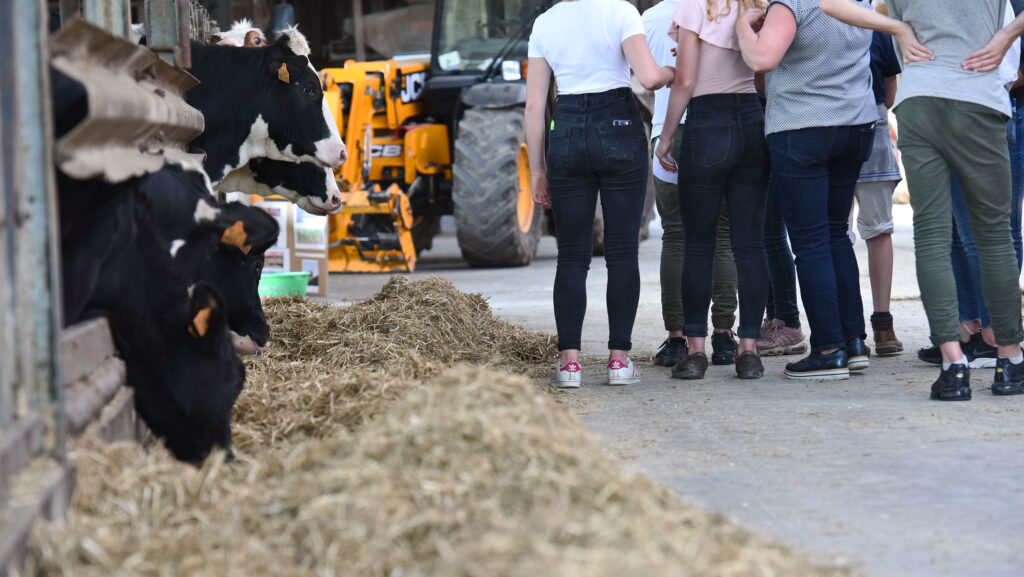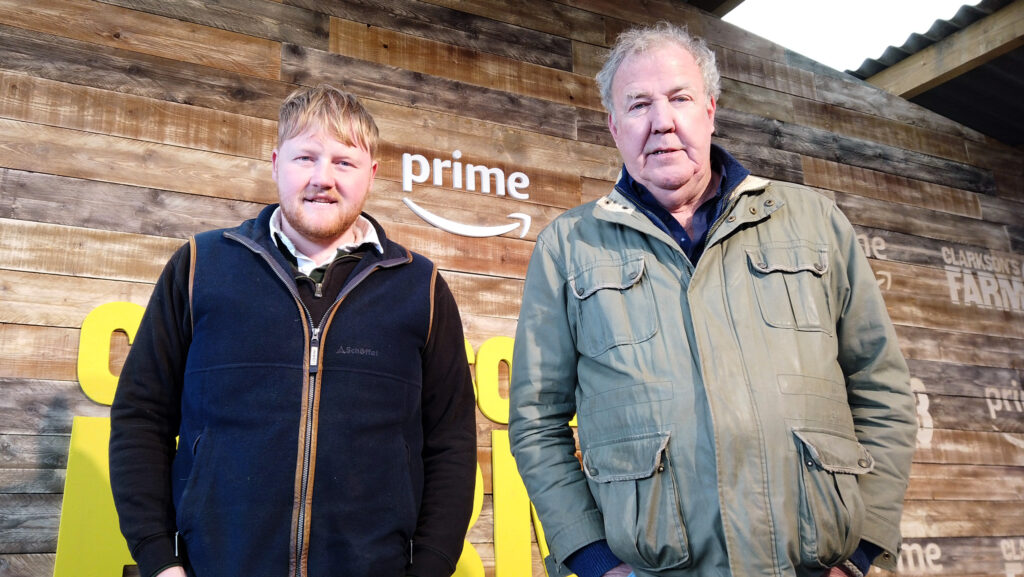Ag student numbers up 20% – is it the ‘Clarkson effect’?
 © AdobeStock/JeanLuc
© AdobeStock/JeanLuc One of the country’s best-known farmers could be a reason why applications by students to study farming-related courses at UK universities have increased by a fifth in the past five years.
Jeremy Clarkson and his TV series, Clarkson’s Farm, is watched by millions and, for some, he is a farming hero, raising the profile of British farming.
In 2021, he won the Farming Champion Award at the Farmers Weekly Awards.
See also: How young farmers got their farming jobs
Clarkson’s Farm has shone a spotlight on farming and is thought to be encouraging more young people to choose it as a career.
University and college admissions body Ucas has published data that shows that applications from 18-year-olds to study agriculture, food and related degrees have increased to 9,400 this year.

Kaleb Cooper and Jeremy Clarkson © MAG/Phil Case
This is up by 20% on 2019, when applications stood at about 7,900.
That had resulted in 8% more applicants being accepted onto agricultural courses since 2023.
In 2021, when Clarkson’s Farm first hit TV screens, those student numbers went up by 18%, and by 13% in 2022.
Interest
Dan Shaffer, director of academic services at the Royal Agricultural University at Cirencester, said there had been interest this year from students who don’t have backgrounds in agriculture.
Although Mr Shaffer said there was no firm evidence that this was down to the “Clarkson’s Farm effect”, the university does have a link with the show as it is offering the Kaleb Cooper Bursary this year.
Students from a non-farming background, such as Kaleb, who stars in Clarkson’s Farm, are encouraged to apply.
This bursary is for £3,000 and will be awarded to a student aged between 18 and 30.
Encouraging
Luke Cox, chairman of the National Federation of Young Farmers’ Clubs (NFYFC) AGRI steering group, who studied agriculture at the University of Reading, said he was encouraged that more young people are choosing to study agriculture.
“Collaborative industry initiatives – as well as popular TV shows and social media – are helping to promote the benefits of a role in food and farming,” he said.
Young Farmers’ Clubs have also seen membership numbers grow in the past few years.
